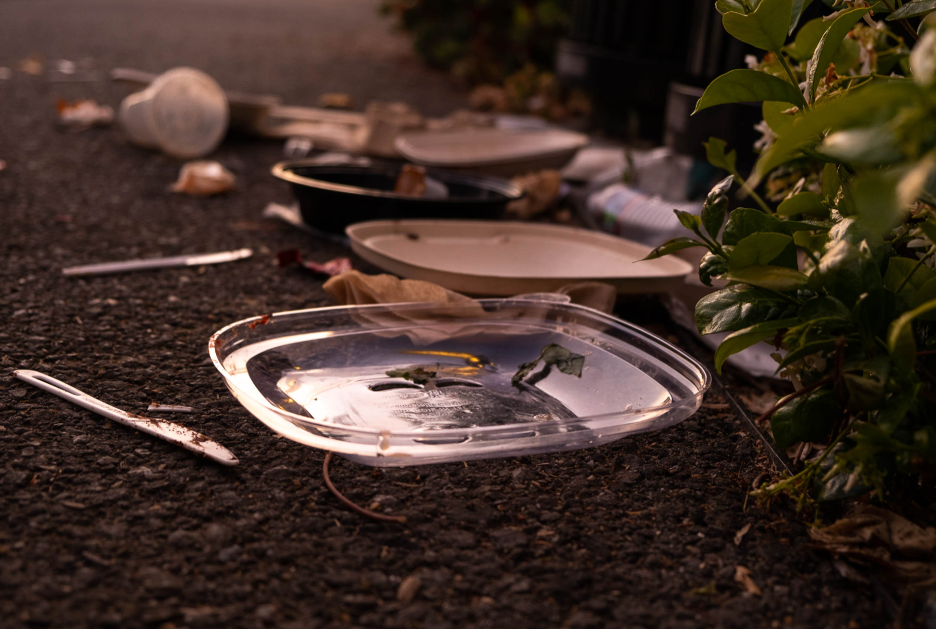As Stanford’s campus begins to return to normal and undergraduates move back in, some students are still concerned about waste and sustainability as University dining halls adjusted to pandemic restrictions over the past 17 months.
Contrary to the buffet-style dining experience before the pandemic, Stanford students on campus this school year were admitted into the dining halls in limited numbers, only permitted to enter the hall momentarily in one-way lines to pick up their pre-packaged foods — just some of the many safety protocols enforced by Stanford’s CleanDining program. Other regulations include health checks, masks, COVID-19 testing for staff, physical distancing and exposure tracing.
Until mid-July, Stanford dining halls distributed food to students via disposable containers and utensils in order to adhere to social distancing protocols and minimize the spread of Covid-19. According to students currently on campus, policies have recently changed, and dining halls returned to using reusable dishes and silverware instead of plastic disposable items.
Residential & Dining Enterprises (R&DE) did not respond to multiple requests for comment.
Some students harbored concerns about the surge in plastic waste since COVID-19 dining regulations were enforced.
That system caused heaping piles of disposable waste in the past weeks and months according to Julia Simons ’22, the former director of Students for a Sustainable Stanford (SSS).
“[Pre-packaged meals] almost certainly increases food waste since you’re getting a meal with all kinds of things that you don’t necessarily want — maybe you want one or two things from it, but then you waste the rest of it,” she said. “[Before the pandemic,] you could pick and choose what you wanted easily.”
Simons said Stanford provided students with video trainings and frequent emails with waste-management instructions and recycling tips; however, these programs were “not well-attended” and mainly encouraged students to sort their containers into the correct bins.
“I know sorting this year was particularly a challenge, and people weren’t very diligent about making sure they composted leftover food,” she said. “We could have utilized student staff across the campus to do more informal trainings to reinforce that good sorting behavior.”
Simons said SSS was not allowed to put out recycling trash bags for students, leading many students to throw out all of their disposable dining containers in the dumpster without taking the time to sort recyclables.
Former Associated Students of Stanford University senator Jonathan Lipman ’21 said he thought Stanford did what they had to to keep students safe. “The environmental weakness was a little bit unfortunate, but it sounded like that was unavoidable,” he said.
However, Lipman, who experienced the dining halls both before and during the pandemic, agreed that there could have been a more sustainable approach, calling it “heartbreaking” to see recyclable trash filling up dumpsters. “Stanford could have done a better job of making recycling bins more accessible,” he added.
Lour Drick Valsote ’24 also noticed the excessive waste but recognized the benefits of the carry-out dining program. Since he arrived on campus in June, he said his experience in dining halls has been “overwhelmingly positive.”
Valsote said that take-out food is more convenient. “Aside from the environmental impact, I do prefer having things pre-packaged,” he said.
As of now, health checks continue to be a requirement to enter the dining hall. However, according to current students, the food serving area is self-serve, and takeout containers have now been made available for students to take food out of the dining hall.
“As long as it’s safe, it’s good to be using reusable things again,” Lipman said.
